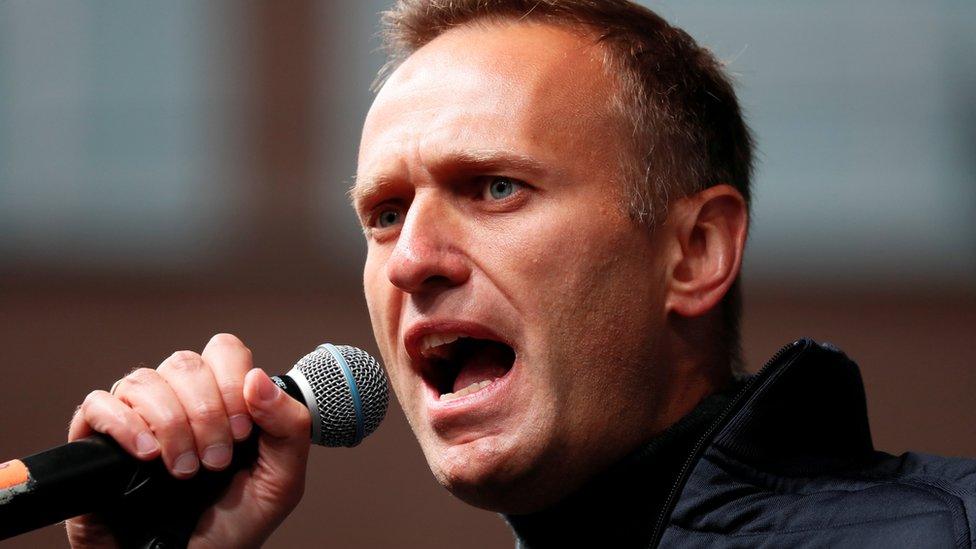Novichok attack: Putin ultimately responsible - minister
- Published
On the trail of Russians Alexander Petrov and Ruslan Boshirov, who UK police carried out a nerve agent attack in Salisbury in March 2018
Vladimir Putin must take responsibility for the Salisbury Novichok attack, UK security minister Ben Wallace has said.
Mr Wallace told the BBC "ultimately, of course", Russia's president was behind the poisoning of Russian ex-spy Sergei Skripal and his daughter in March.
The Kremlin, which denies involvement, said it was "unacceptable" to make accusations against the leadership.
The UK has named two men believed to be from Russia's military intelligence service, the GRU, as the main suspects.
Theresa May told the Commons on Wednesday that the suspects had entered the UK on Russian passports using the names Alexander Petrov and Ruslan Boshirov.
She said the poisoning was "not a rogue operation" and was "almost certainly" approved at a senior level of the Russian state.
Mr Skripal, 66, and his daughter Yulia, 33, were poisoned with Novichok on 4 March. Det Sgt Nick Bailey also fell ill after responding to the incident in Salisbury.
Prosecutors say there is sufficient evidence to charge the two men, and UK officials are due to brief the UN Security Council on the investigation on Thursday.
Police have also linked the attack to a separate Novichok poisoning on 30 June in Amesbury, that led to the death of 44-year-old mother-of-three Dawn Sturgess.
Meeting with the UN
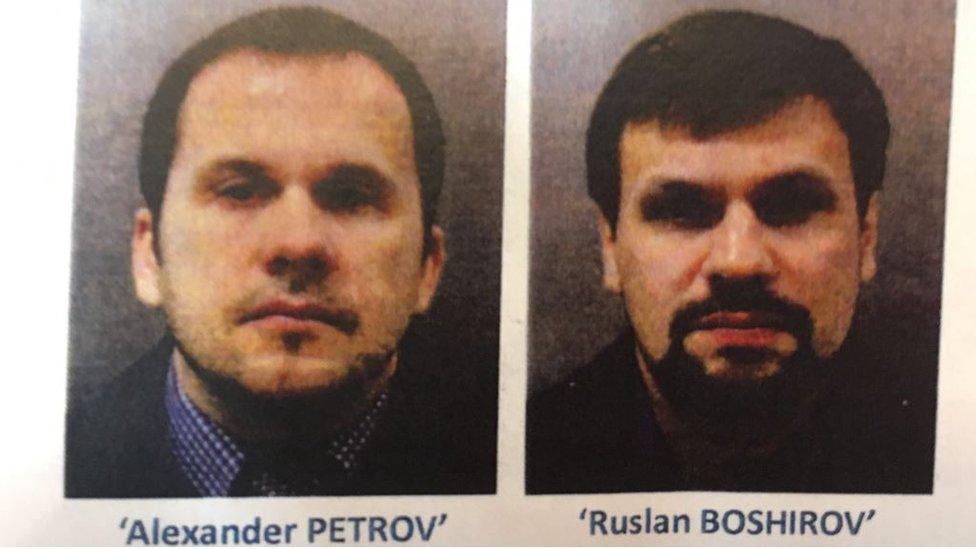
Britain called Thursday's meeting of the UN Security Council, of which Russia is a permanent member, along with China and UK allies the US and France.
Mr Wallace said the UK must use the meeting to "maintain the pressure, to say the behaviour we have seen is totally unacceptable".
He said Mr Putin's government "controls, funds and directs the military intelligence - that's the GRU", adding that nobody could say the Russian leader was "not in control of his state".
BBC security correspondent Gordon Corera said that alongside the meeting, it was thought there would be less visible activity including covert work by British intelligence to disrupt the GRU.
Mrs May has also said Britain will push for the EU to agree new sanctions against Russia.
Ahead of the UN meeting, Australia said it was "in lock step with the UK on the importance of holding Russia to account" over the "dangerous and deliberate act".
What might the UK do to disrupt the GRU?
Analysis by BBC security correspondent Gordon Corera
The most effective measure, officials claim, may have already been taken in expelling suspected Russian intelligence officers in the UK and from allied countries.
Names will also be shared to prevent them being posted to each other's nations.
There will be the attempt to use publicity and exposure to make it harder for its officers to travel and operate.
Other measures against Russia more generally, it is hoped, might also push the Kremlin to restrain the GRU.
Finally, there will be a more clandestine element.
This is unlikely to mean "cyber-war", rather it will be attempts to disrupt the GRU's own cyber-operations to try to make its life harder.
Police appeal
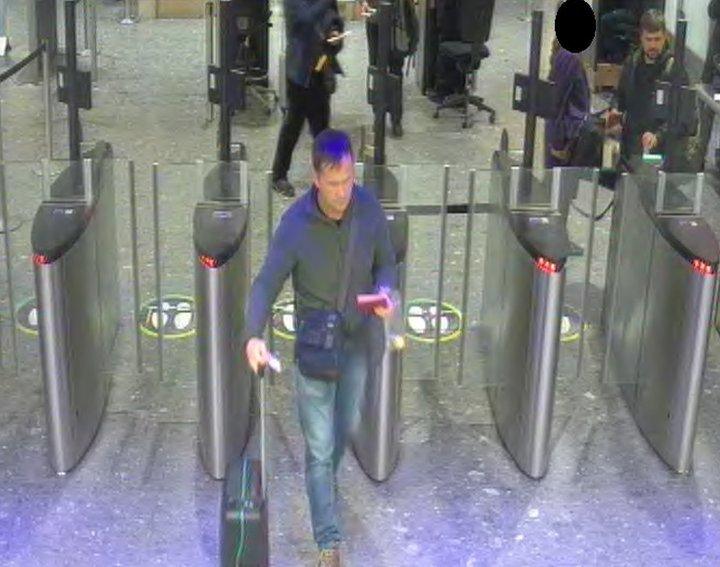
In the evening of 4 March, CCTV showed the pair at Heathrow Airport, where they were to board a flight to Moscow
Police are asking the public for information about a suitcase seen in the CCTV image of the two suspects at Heathrow Airport on Sunday 4 March, before they flew to Moscow.
In the image, Mr Petrov can be seen pushing a hard dark-coloured wheelie suitcase with a green stripe of the size that can fit into hand luggage lockers.
It does not appear that he arrived in the country with the suitcase.
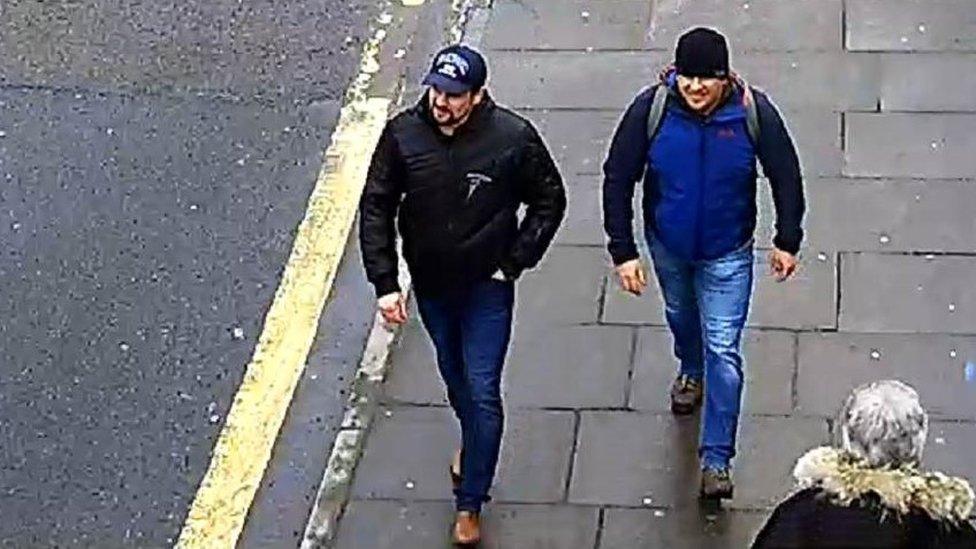
The pair are seen in the centre of Salisbury heading towards the train station
Counter terrorism officers are also interested in any information the public can give them about the grey and olive backpack that Mr Petrov and Mr Boshirov were both seen wearing at different times on the Sunday.
Moscow reaction: 'Go to hell'
By BBC Monitoring
Responding to the fresh accusations, the Kremlin's media machine resorted to its usual tactic: a combination of denials and sarcasm.
"Don't laugh," said a talk-show host on state TV, delivering the latest news from London.
The foreign ministry's spokeswoman, Maria Zakharova, put in an appearance herself to accuse the UK of fabricating the Skripal case. "This whole story was created to punish Russia... to introduce sanctions," she said on Rossiya 1 TV.
"A detective story" and "an absurd political thriller" were some of the epithets used by Russian news bulletins, which also claimed that Britain's allegations were not backed up by a shred of evidence.
At the same time, they dismissed the suspects' photographs released by London as crude fakery.
"Put evidence on the table or go to hell," said one commentator on Russian state TV.
The suspects' movements
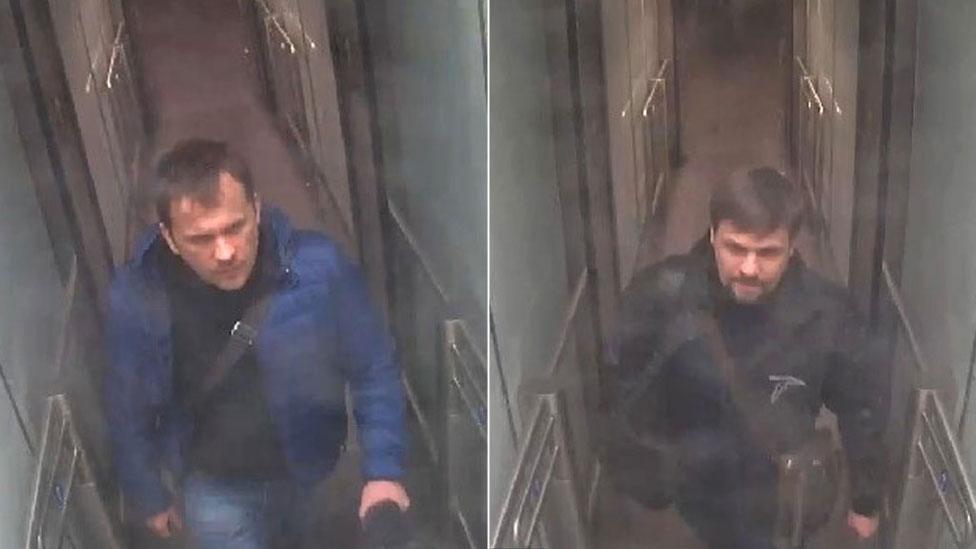
Police released CCTV showing the two men arriving at Gatwick Airport on 2 March
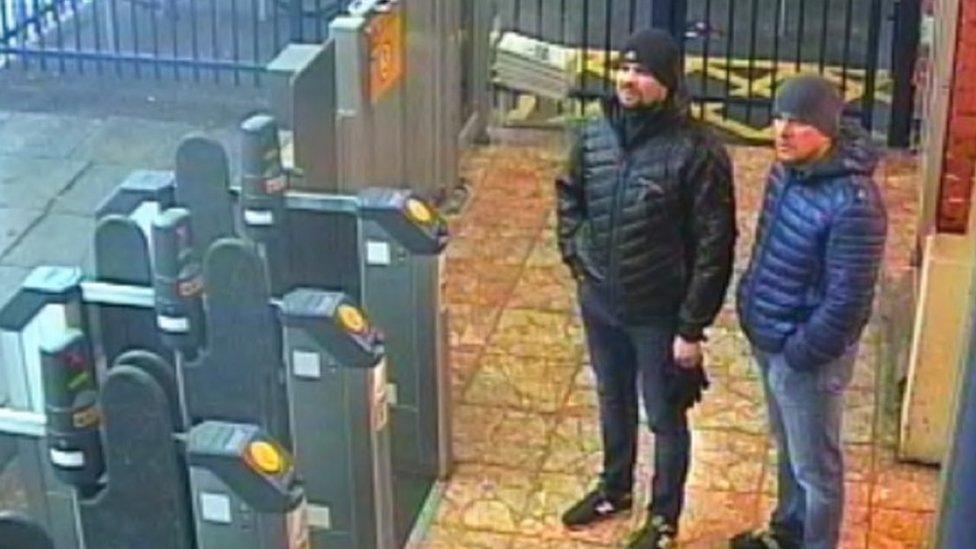
They were seen arriving at Salisbury station the following day for what officers said was reconnaissance
The Metropolitan Police said the two men arrived at Gatwick Airport from Moscow on 2 March and stayed at the City Stay Hotel in Bow Road, east London.
On 4 March they travelled to Salisbury - having also visited for reconnaissance the previous day - where Mr Skripal's front door was contaminated with Novichok.
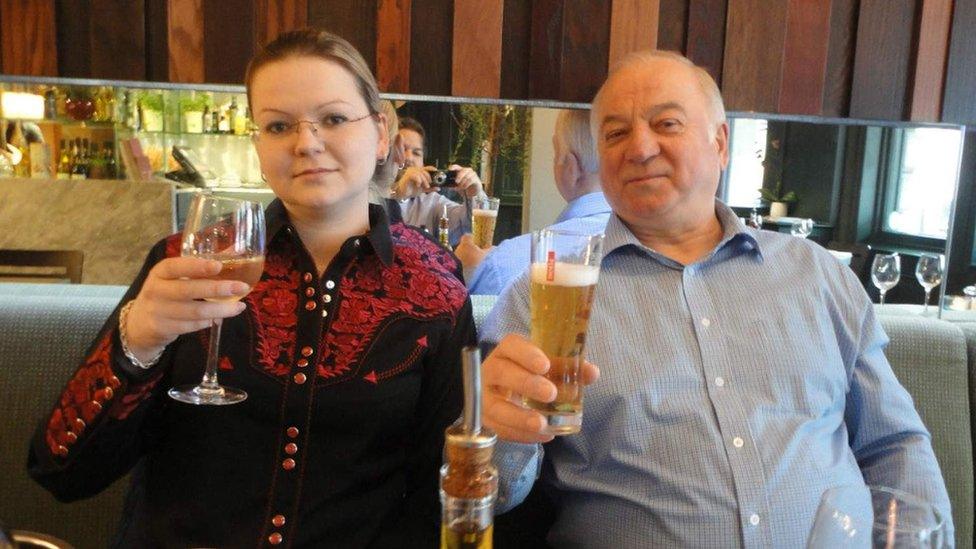
Yulia and Sergei Skripal fell ill after Mr Skripal's front door was sprayed with Novichok
Officers believe a modified perfume bottle was used to spray the door.
The pair flew from Heathrow to Moscow later that night.
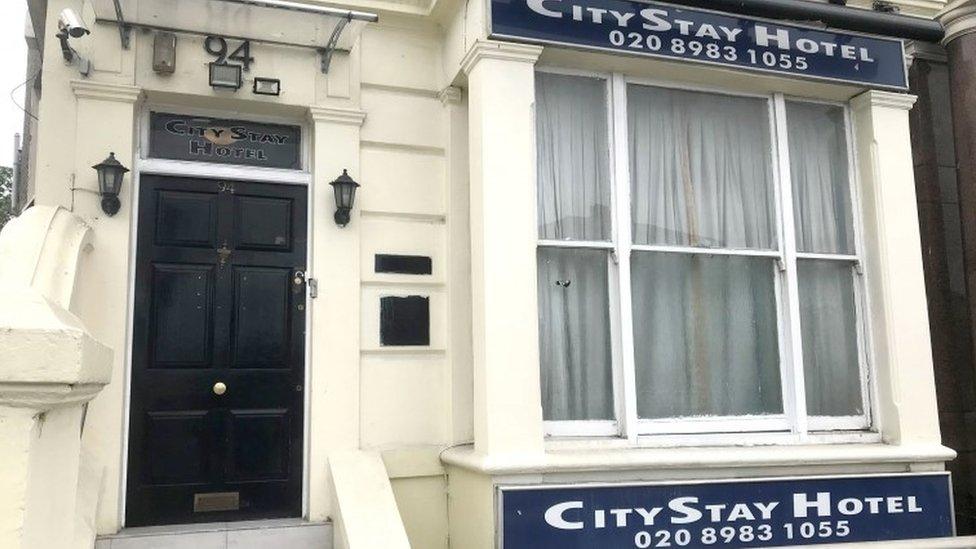
The hotel in east London, where police say Alexander Petrov and Ruslan Boshirov stayed before they travelled to Salisbury, is "open for business as usual"
While traces of Novichok were found in the London hotel room, police said there was no risk to other guests who were staying at the hotel at the time.
Officers want to hear from anyone who was a guest there from 4 March to 4 May.
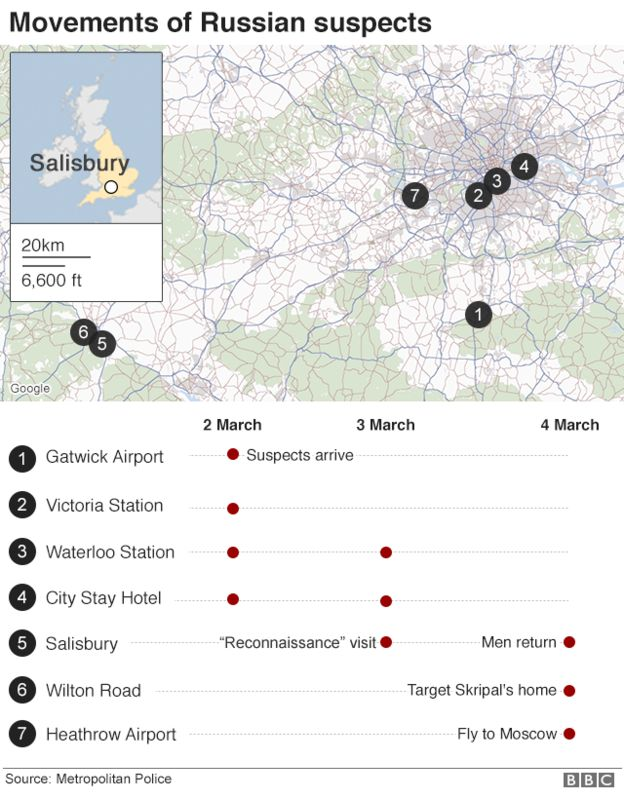

The Crown Prosecution Service (CPS) said Petrov and Boshirov should be charged with offences including conspiracy to murder; attempted murder and the use and possession of Novichok contrary to the Chemical Weapons Act.
However, it is not applying to Russia for the extradition of the two men, because Russia does not extradite its nationals.
But a European Arrest Warrant has been obtained in case the pair travel to the EU.
Amesbury poisoning
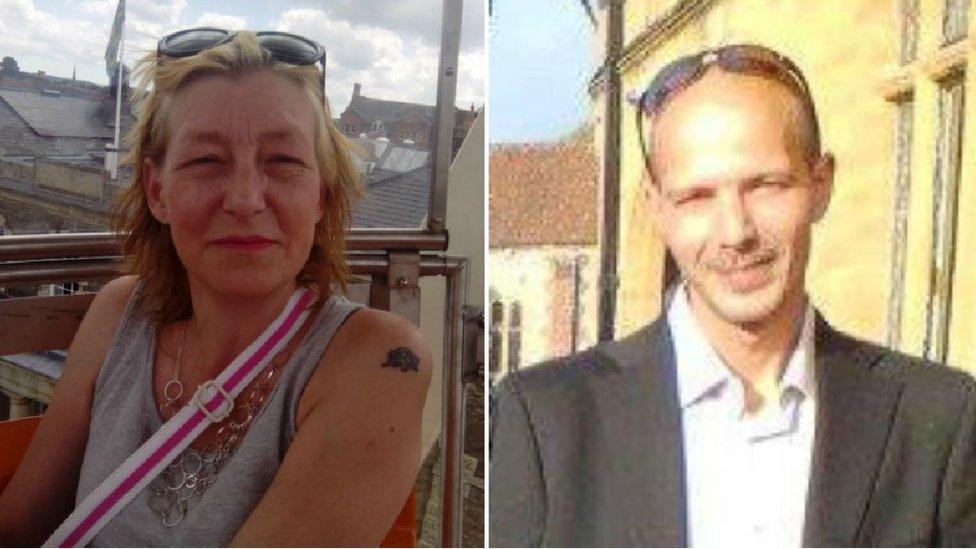
Dawn Sturgess and Charlie Rowley were poisoned by Novichok
Police said Ms Sturgess and her partner Charlie Rowley were later exposed to Novichok in Amesbury, near Salisbury, after handling a contaminated container, labelled as Nina Ricci Premier Jour perfume.
Mr Rowley told police he found the box containing the small bottle and an applicator - all found to be counterfeit - in a charity bin.
He tried to put the two parts together and got some of the contents on himself. His partner Ms Sturgess applied some of the contents to her wrists and became unwell.
The bottle, with a modified nozzle, had contained a "significant amount" of Novichok, Scotland Yard said.
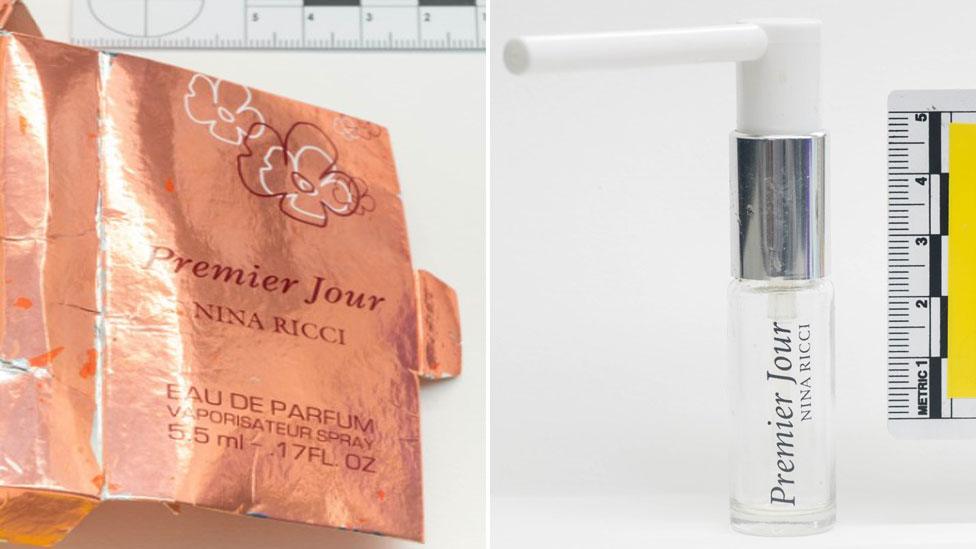
The counterfeit perfume bottle recovered from Mr Rowley's home and the box police say it came in.
The charges Petrov and Boshirov would face currently relate only to the Salisbury attack. Police said officers are continuing to work with the Crown Prosecution Service on the Amesbury incident.
- Published5 September 2018

- Published8 October 2018
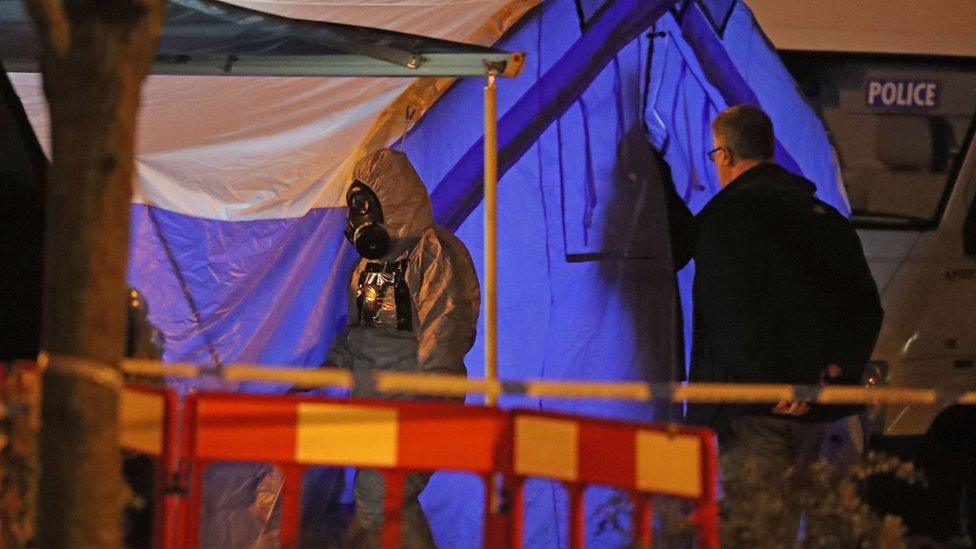
- Published5 September 2018

- Published4 September 2018
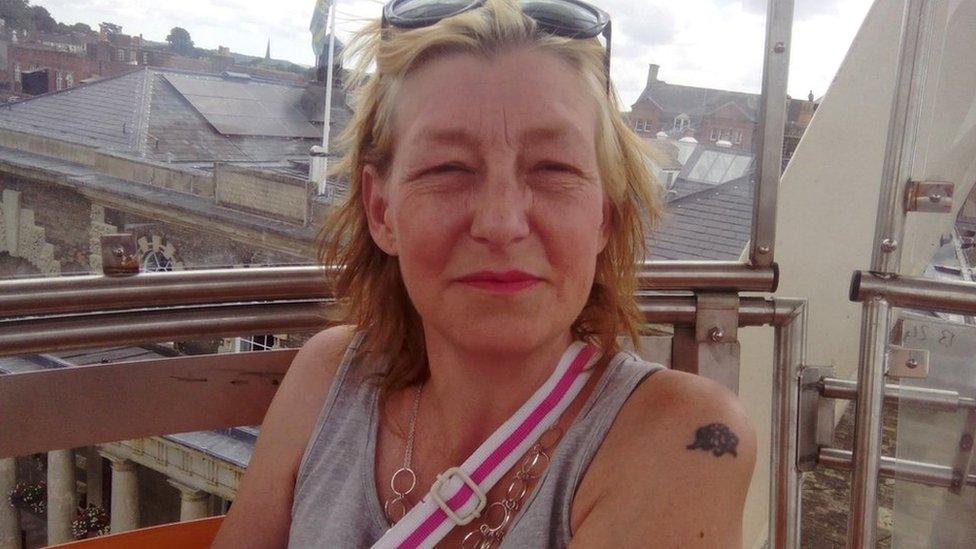
- Published31 August 2018
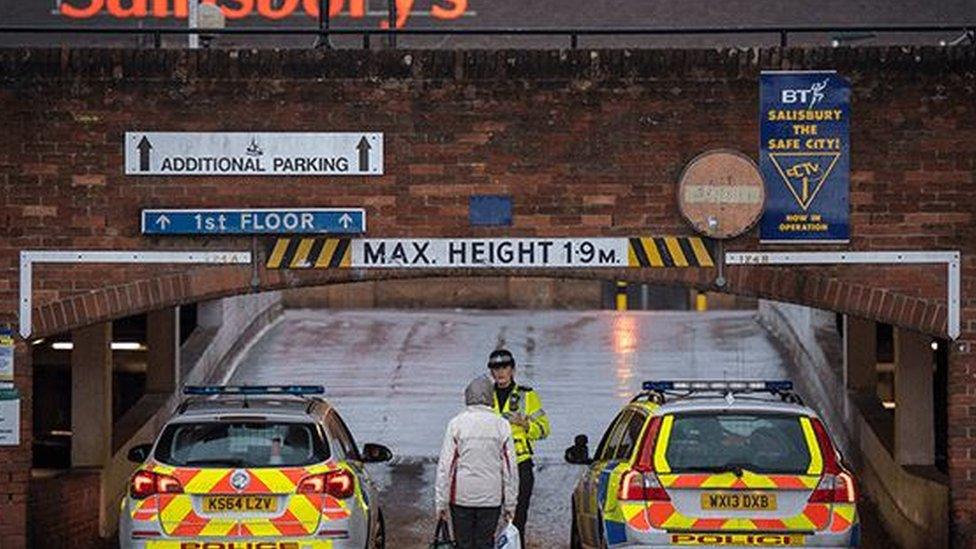
- Published9 August 2018

- Published2 September 2020
